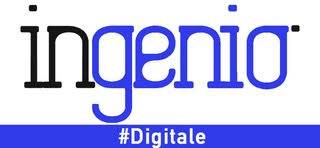Worldwide Mobile Phone Growth Expected to Drop to 1.4% in 2012 Despite Continued Growth Of Smartphon
Worldwide Mobile Phone Growth Expected to Drop to 1.4% in 2012 Despite Continued Growth Of Smartphones, According to IDC
FRAMINGHAM, Mass. December 4, 2012 – The worldwide mobile phone market is forecast to grow 1.4% year over year in 2012, the lowest annual growth rate in three years despite a projected record number of smartphone shipments in the high-volume holiday season. According to the International Data Corporation (IDC) Worldwide Quarterly Mobile Phone Tracker, vendors will ship more than 1.7 billion mobile phones this year. In 2016, IDC forecasts 2.2 billion mobile phones will be shipped to the channel.
Global smartphone volume in the fourth quarter of 2012 (4Q12) is expected to reach 224.5 million units, representing 39.5% year-over-year growth due primarily to strong consumer demand. For the year, smartphone shipments are forecast to grow 45.1% year over year to 717.5 million units. Strong smartphone growth is a result of a variety of factors, including steep device subsidies from carriers, especially in mature economic markets where carriers resell the majority of smartphones, as well as a growing array of sub-US$250 smartphones in emerging markets.
"Sluggish economic conditions worldwide have cast a pall over the mobile phone market this year," said Kevin Restivo, senior research analyst with IDC's Worldwide Quarterly Mobile Phone Tracker. "However, the fourth quarter will be relatively bright due in part to sales of high-profile smartphones, such as the iPhone 5 and Samsung’s Galaxy S3, in addition to lower-cost Android-powered smartphones shipped to China and other high-growth emerging markets."
Smartphone Operating Systems
"Underpinning the worldwide smartphone market is a constantly shifting mobile operating system landscape," added Ramon Llamas, research manager with IDC's Mobile Phone team. "Android is expected to stay in front, but we also expect it to be the biggest target for competing operating systems to grab market share. At the same time, Windows Phone stands to gain the most market share as its smartphone and carrier partners have gained valuable experience in selling the differentiated experience Windows Phone has to offer. What bears close observation is how BlackBerry's new platform, BlackBerry 10, and multiple versions of Linux will affect the market once the devices running these systems are available."
IDC forecasts Android to be the clear leader in the smartphone mobile operating system race, thanks in large part to a broad Selection of devices from a wide range of partners. Samsung is the leading Android smartphone seller though resurgent smartphone vendors LG Electronics and Sony,
both of which cracked the top five smartphone vendors during 3Q12, are not to be overlooked. IDC believes the net result of this will be continued double-digit growth throughout the forecast period.
iOS will maintain its position as the clear number two platform behind Android at the end of 2012 and throughout the forecast. The popularity of the iPhone across multiple markets will drive steady replacements and additional carrier partners will help Apple grow iOS volume. However, the high price point of the iPhone relative to other smartphones will make it cost prohibitive for some users within many emerging markets. In order to maintain current growth rates, Apple will need to examine the possibility of offering less expensive models, similar to its iPod line. Until that happens, IDC forecasts iOS to ship lower volumes than Android.
The BlackBerry OS will grow slowly but largely maintain share over the coming years following the BlackBerry 10 launch next year. The new operating system and devices will be valued by some longtime BlackBerry fans, particularly those who have waited for the new OS as Research In Motion delayed its release. This will allow the company to maintain pockets of strength in higher-growth emerging markets such as Indonesia and various Latin American countries. But, as with many other new platforms, the success of BB 10 will be partly dependent upon channel advocacy, like sales associates who can effectively tell the BlackBerry story.
Windows Phone will battle with BlackBerry for the number three spot in 2013, but will gain further clarity in the years that follow. Windows Phone will build on the progress it made in 2012, with Nokia establishing its presence and HTC solidly jumping back into the race. Moreover, contributions by Samsung, ZTE, and Huawei will help grow its footprint. With more vendors releasing more devices aimed at multiple segments, sales associates will be better positioned to tell a compelling Windows Phone story and to explain the value of Windows Phone's differentiated experience compared to market leaders Android and iOS.
Linux will trail the market leaders throughout our forecast though it is expected to be the dark horse of the forecast. K-Touch has quietly built its Linux volumes this year while Haier recently released its first Linux smartphones. In addition, multiple platforms are expected to announce and launch their Linux-based smartphones in 2013, including Samsung's Tizen and Jolla's SailFish. Benefiting these platforms are their ties to previous platforms from the LiMo Foundation and Nokia's MeeGo, which could lead to greater developer interest.
http://www.idc.com/getdoc.jsp?containerId=prUS23818212#.UL58GZPm6eM
